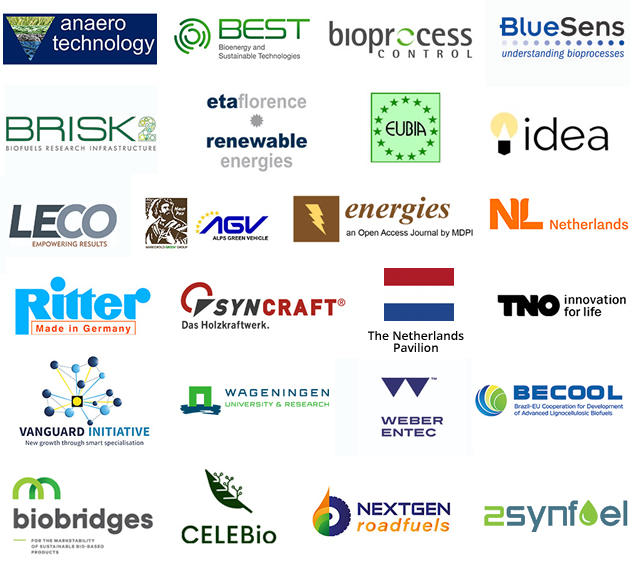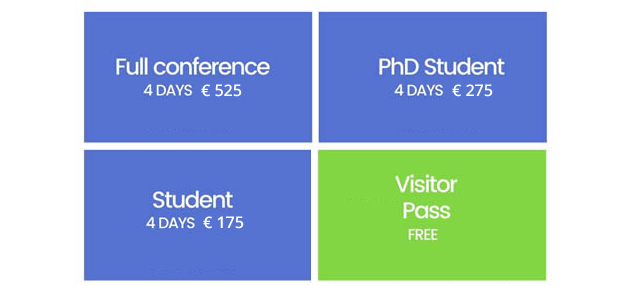 |
      |
| |
e-EUBCE 2020 Programme Highlights: Topic 3 and 4
Previewed by David Baxter
|
 |
Topic 3: Biomass Technologies and Conversion to Intermediate Bioenergy Carriers and Products of the Bioeconomy
Monday 6 July
Three consecutive oral sessions for Topic 3.7, “Bio-based chemicals and materials”. Starting at 14:00, the first session, 3AO.3, on “New Processes for Bioproducts” addresses new approaches for bio-based chemicals and materials, and new products types; these include a hybrid bio-thermochemical route for the production of bio-isoprene, food packaging LCAs and essential oil and biomass obtained by mechanised harvesting of a West Mediterranean bush species.
The second oral session within Topic 3.7,3AO.6, commences at 15:10 and is entitled “Biotechnology for Biobased Products and Materials”. These biotechnology presentations focus on production of chemicals and materials, including the influence of feedstocks and processing technologies on valorisation of bio-waste terpenes, high-value compounds production from marine green algae (Tetraselmis Suecica) and heterogeneously catalysed conversion of cellulose to high-added value chemicals.
The final oral session for Topic 3.7, 3AO.9, commences at 16:20 on the subject of “Chemical Pathways to Biobased Products”. This session focusses on chemical strategies for converting biomass to products and includes examples of transformation of monosaccharides to furanic compounds and polymers, platform chemicals – 2,5-furandicarboxylic acid and muconic acid from sugar acids, and added value product from side-streams effluent from large scale black pellet steam explosion treatment.
The other oral session on Monday is from Topic 3.5, “Bio-alcohols from Lignocellulosic Biomass”. The session, 3AO.4, starting at 13:30 is on “Technological Improvements of Advanced Ethanol Production”. This session covers recent trends in bio-alcohol production using new innovative treatments, for example pretreatment of lignocellulosic materials, simultaneous saccharification and fermentation using mixed microbial cultures and hydrolytic enzymes from food waste, each of these amongst the latest advances in this topic.
Read the full preview of the Topic 3
Topic 4: Bioeconomy Sustainability, Impacts and Policies
Monday 6 July
Two visual/poster sessions start the week for Topic 4. The first is a joint session (4AV.1) for Topic 4.1, “Sustainability and Socio-economic Impacts”, Topic 4.4, “Biomass Strategies and Policies towards a Bioeconomy”, and Topic 4.5, “Resource Efficient Bioeconomy and Social Opportunities”, on the subject of “Biomass Strategies and Sustainability Implementation Towards a Bioeconomy” and starting at 14:00. This visual session covers different methodologies to assess sustainability, including certification, for different regions and pathways. The session also deals with strategies and policies for bioeconomy in many different countries and regions of the world, for example Thailand’s Path towards Sustainable Development, a guideline to create regional bioeconomy hubs in Germany, and includes a wide range of biomass substrates, and their conversion to diverse bioproducts, for example sugarcane for renewable electricity in Brazil. In addition, resource efficiency in value chains for energy, fuels and biobased products for the bioeconomy are addressed, for example grasses and rural agri-food value chains, vertical farming and BECCS, wood ash fertilisers and social dimensions of the bioeconomy.
Starting at 15:10 for Topic 4.2, “Environmental Impacts”, and for Topic 4.3, “Climate Impacts and GHG Performance” is session 4AV.2 on “Environmental and Climate Impacts of Biomass Systems”. This session deals with land and soil interactions associated with biomass production systems from an ecosystem perspective, and includes for example soil quality & GHG emissions from periodically wet soils for different cropping systems, emissions from residential wood burning, yield estimation and water use efficiency for sugarcane production, and life cycle assessment of algal biofuel cultivated in bioreactors. This session also deals with a range of processes for reducing GHG emissions, including the life cycle effects of sugarcane straw removal, carbon capture, retrofitting bioenergy plants with carbon dioxide capture equipment, C-efficiency in energy systems (including transport), a new index to track the performance of biofuel production, and the impacts of biomass crops on soils in different regions of the world.
Read the full preview of the Topic 4
Full detailed programme
Virtual e-exhibition: get your free ticket
|
 |
By getting your free ticket you can meet exhibitors representatives and staff, chat to them, as well as walk away with a brochure and attend Live Stage presentations and find solutions and strategies.

Live Stage Agenda
Register today and join us online for 2 months
|
 |

See who attend
   
www.eubce.com
|
|
|
|
|
|
|
|
|
|
|
| |
COORDINATION OF THE TECHNICAL PROGRAMME
|
|
|
|
|
|
|
|
|
| |
INSTITUTIONAL BIOMASS INDUSTRY COOPERATION
|
|
|
|
|
|
|
|
|
|
|
|
|
|
|
|
|
|
|
|
|
|
|
|
|
|
|
|
|
|
|
|
|
|
|
|
|
| |
Organised by
|
with the support of
|
|
|
|
|
|






